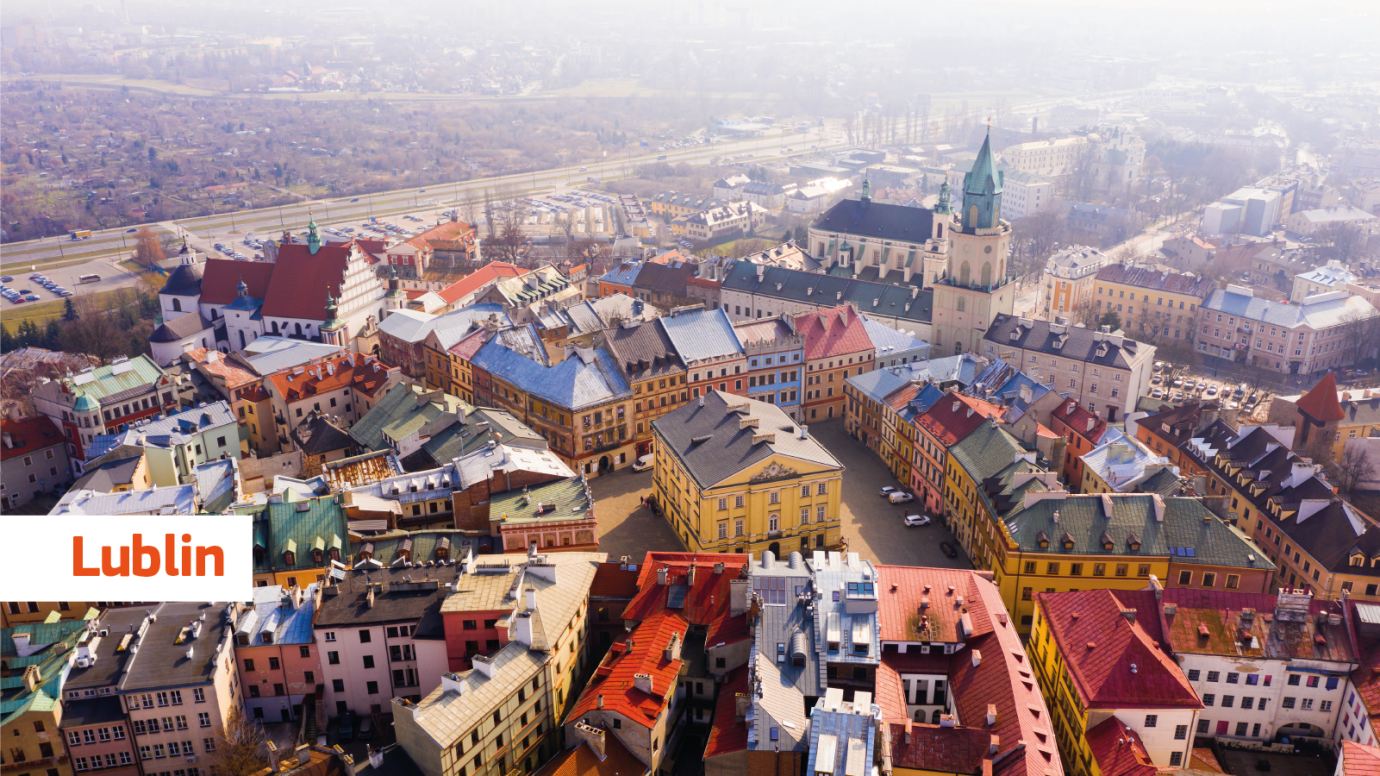Lublin to be the European Capital of Culture 2029 in Poland
The Polish city of Lublin recommended as one of the European Capitals of Culture 2029.

The chairperson of the European Capitals of Culture expert panel announced on 25 September that the city of Lublin has been recommended for the European Capital of Culture 2029 title in Poland.
A panel of independent experts made the recommendation at the end of a three-day meeting in Warsaw, after assessing applications from four short-listed Polish cities.
The selection process for the Polish European Capital of Culture in 2029
In accordance with the Decision of the European Parliament and of the Council governing the European Capital of Culture Union action, there will be two European Capitals of Culture in 2029: one in Poland and one in Sweden.
Regarding the competition in Poland, the relevant Polish authorities invited applications from interested cities in November 2022.
Twelve cities submitted applications by the deadline of 15 September 2023: Bielsko–Biała, Bydgoszcz, Jastrzębie–Zdrój, Katowice, Kielce, Kołobrzeg, Lublin, Opole, Płock, Pszczyna, Rzeszów and Toruń.
The pre-selection meeting took place in Warsaw from 23 to 27 October 2023. The cities of Bielsko–Biała, Katowice, Kołobrzeg and Lublin were short-listed. They were given until 1 August 2024 to complete their applications.
The final selection meeting took place on 23-25 September 2024.
A panel of independent experts examined the applications. Two of the experts are appointed by the relevant national authorities and 10 by EU institutions and bodies (European Parliament, Council, Commission and Committee of the Regions).
How cities become European Capitals of Culture
According to the current scheme for designating the European Capitals of Culture, the selection has two rounds:
a pre-selection round (following which a shortlist of candidate cities is drawn up);
a final selection round approximately nine months later (one city is recommended for the title).
The selected cities are then officially designated by the Member State concerned.
The selection criteria state that cities should prepare a cultural programme with a strong European dimension, which fosters the participation of the city’s stakeholders as well as its various neighbourhoods and attracts visitors from the whole country and Europe.
The programme must have a lasting impact and contribute to the long-term development of the city. The cities must also show that they have the support from the relevant public local authorities and the capacity to deliver the project.
The next European Capitals of culture
Each year, two to three cities hold the title of European Capital of Culture. Alongside [Bielsko–Biała, Katowice, Kołobrzeg or Lublin], a Swedish city (to be selected in December) will also hold the title in 2029.
The three European Capitals of Culture 2024 are
Bad Ischl (Austria)
Bodø (Norway)
Tartu (Estonia)
Other upcoming European Capitals of Culture are:
2025
Chemnitz (Germany)
Nova Gorica (Slovenia)
2026
Oulu (Finland)
Trenčín (Slovakia)
2027
Liepaja (Latvia)
Évora (Portugal)
2028
Budweis / České Budějovice (Czech Republic)
Skopje (North Macedonia)
Bourges (France)
Background
Started in 1985, European Capitals of Culture have developed into one of the most ambitious cultural projects in Europe and one of the EU’s most appreciated activities.
The goals of this initiative are more relevant than ever:
to provide Europeans with opportunities to learn more about each other’s cultures
to enjoy their shared history and values
to experience the feeling of belonging to the same European community
to develop European cultural connections and partnerships
to underline the role of culture in the development of cities.

熱門頭條新聞
- How will multimodal AI change the world?
- Moana 2
- AI in the Workplace
- Challenging Amazon: Walmart’s Vision for the Future of Subscription Streaming
- LAUNCH OF AN UNPRECEDENTED ALLIANCE BETWEEN EUROPEAN FILM AND AUDIOVISUAL MARKETS
- Marvel Rivals Unveils Launch Trailer
- The Studio Park Thailand: A Pemier Production Hub for Southeast Asia
- ABC Commercial partners with Amagi to launch suite of FAST channels
